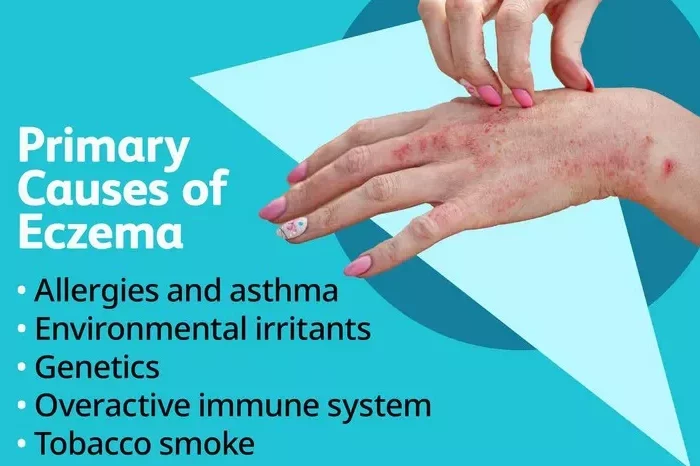Eczema, a chronic skin condition characterized by inflammation and irritation, affects millions of people worldwide. The discomfort and appearance of eczema can be distressing, prompting many individuals to seek quick and effective solutions for relief. While managing eczema often requires a multifaceted approach tailored to individual needs, there are several strategies that may contribute to fast relief. In this article, we will explore various methods to alleviate eczema symptoms promptly and restore skin health.
Understanding Eczema
Before delving into solutions, it’s crucial to understand the nature of eczema. Eczema, also known as atopic dermatitis, is a skin condition that leads to red, itchy, and inflamed skin. It can manifest in different forms, ranging from mild to severe, and its causes are multifaceted, involving genetic, environmental, and immune system factors. Eczema can affect people of all ages, with symptoms often exacerbated by triggers such as allergens, stress, and certain foods.
Hydration as the Foundation
One of the fundamental aspects of managing eczema is maintaining proper skin hydration. Dry skin can exacerbate eczema symptoms, leading to increased itching and inflammation. Using a high-quality moisturizer is key to restoring the skin’s natural barrier and preventing moisture loss. Look for moisturizers that are fragrance-free and formulated for sensitive skin to avoid potential irritants.
In addition to external hydration, internal hydration is equally important. Drinking an adequate amount of water throughout the day supports overall skin health and helps combat dryness from within. Proper hydration aids in the body’s natural ability to heal and regenerate skin cells, promoting a faster recovery from eczema flare-ups.
Gentle Cleansing Techniques
Choosing the right cleansing products is essential for individuals with eczema. Harsh soaps and cleansers can strip the skin of its natural oils, exacerbating dryness and irritation. Opt for mild, fragrance-free cleansers that are specifically designed for sensitive skin. When bathing or showering, use lukewarm water instead of hot water, as hot water can further dry out the skin. Gently pat the skin dry after washing, avoiding vigorous rubbing that may irritate sensitive skin.
Identifying and Avoiding Triggers
Eczema flare-ups are often triggered by various factors, and identifying and avoiding these triggers can significantly contribute to fast relief. Common triggers include certain foods, allergens, stress, and environmental factors. Keeping a journal to track activities, foods, and environmental conditions preceding flare-ups can help identify specific triggers unique to an individual.
Once triggers are identified, take proactive steps to avoid or minimize exposure. This may involve making dietary adjustments, using hypoallergenic products, and implementing stress-management techniques. While it may take time to pinpoint specific triggers, the long-term benefits of minimizing flare-ups can be substantial.
Topical Treatments and Medications
For fast relief from eczema symptoms, topical treatments and medications prescribed by a healthcare professional can be effective. Topical corticosteroids, for example, are commonly prescribed to reduce inflammation and itching. However, it’s crucial to use these medications under the guidance of a healthcare provider, as misuse can lead to side effects.
Non-steroidal topical treatments, such as calcineurin inhibitors, are also available and may be recommended for certain individuals. These medications work by modulating the immune response in the skin, helping to control inflammation.
Natural Remedies and Alternative Therapies
In addition to conventional treatments, many individuals seek relief from eczema through natural remedies and alternative therapies. While scientific evidence may vary, some people find these approaches beneficial in managing symptoms. Common natural remedies include:
1. Coconut Oil:
Known for its moisturizing properties, applying organic, cold-pressed coconut oil to affected areas may help soothe and hydrate the skin.
2. Oatmeal Baths:
Adding colloidal oatmeal to a warm bath can provide relief from itching and inflammation. Oatmeal has anti-inflammatory properties that may benefit individuals with eczema.
3. Probiotics:
Some studies suggest that probiotics, which promote a healthy balance of gut bacteria, may play a role in managing eczema. Discussing the use of probiotics with a healthcare professional is advisable.
4. Sunflower Seed Oil:
Applying sunflower seed oil to the skin may help improve hydration and reduce inflammation. Choose high-quality, cold-pressed oils for the best results.
It’s important to note that individual responses to natural remedies may vary, and consulting with a healthcare provider before incorporating these options is recommended.
Conclusion
Eczema is a complex skin condition that requires a comprehensive approach for effective management. While there is no one-size-fits-all solution, combining proper hydration, gentle skincare practices, identification and avoidance of triggers, topical treatments, and, when appropriate, natural remedies can contribute to fast relief from eczema symptoms.
Individuals with eczema should work closely with healthcare professionals to develop a personalized treatment plan tailored to their specific needs. By understanding the underlying factors contributing to eczema and implementing a holistic approach to care, individuals can take proactive steps toward managing their condition and enjoying healthier, more comfortable skin



























